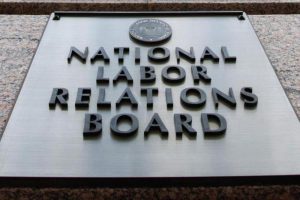Instructional materials and posters on the National Labor Relations Act (NLRA) and virtually every compliance issue a business could ever face are available in our online Digital Workplace Compliance Library, a vast and invaluable resource. You could be relying on it daily if you sign up for an annual compliance plan with Personnel Concepts. Watch our YouTube video for more information.
Following a 3-to-1 vote, the National Labor Relations Board (NLRB) made good on its promise to redefine a joint employer relationship, restoring through a proposed rule the “direct control” principle that the Obama NLRB had loosened to “indirect control.”
 The Notice of Proposed Rulemaking (NPRM) published Sept. 14 states:
The Notice of Proposed Rulemaking (NPRM) published Sept. 14 states:
Under the proposed regulation, an employer may be considered a joint employer of a separate employer’s employees only if the two employers share or codetermine the employees’ essential terms and conditions of employment, such as hiring, firing, discipline, supervision, and direction. More specifically, to be deemed a joint employer under the proposed regulation, an employer must possess and actually exercise substantial direct and immediate control over the essential terms and conditions of employment of another employer’s employees in a manner that is not limited and routine.
In announcing the proposed rule, Board Chairman John F. Ring stated, “I look forward to receiving the public’s comments and to working with my colleagues to promulgate a final rule that clarifies the joint-employer standard in a way that promotes meaningful collective bargaining and advances the purposes of the act.”
The NPRM also contains 12 examples of applications of the revised definition. A public commentary period closes Nov. 13.
The Trump-era NLRB earlier had used a case it was hearing to restore the same “direct control” definition of a joint employer that the NPRM addresses. That decision, however, was reversed when the board’s inspector general accused one member, William Emanuel, of having a conflict of interest due to his previous firm’s involvement in the original decision by the Obama NLRB. The overturned decision was known as Hy-Brand Industry Contractors, which was heard in December 2017 and vacated the next year.
The lone remaining Democrat on the board (one seat is vacant) voiced her dissent on the NPRM. Lauren McFerran questioned both the need to revisit the indirect control decision and the very process used by the majority members to issue the NPRM.
